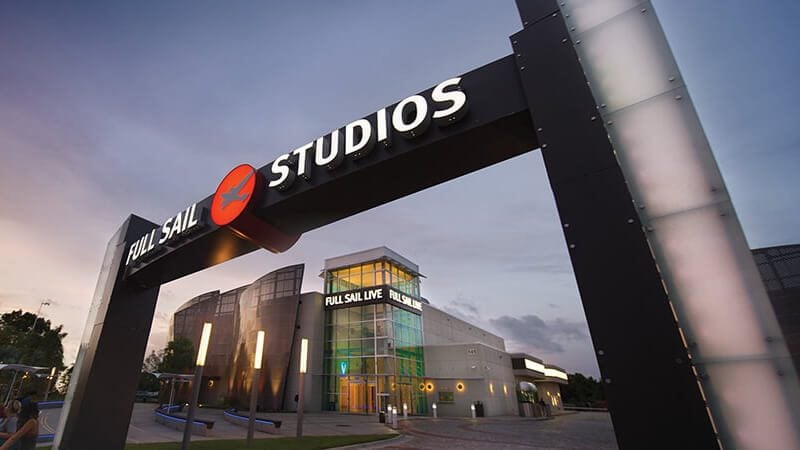Full Sail
Full Sail’s New Sportscasting Degree Aims to Give Students the Edge in an Evolving Industry
Full Sail University’s Dan Patrick School of Sportscasting is the newest bachelor’s degree program aimed at students interested in sports media. As technology and fan culture continue to shift, more and more opportunities are becoming available to those passionate about broadcasting.
According to a recent study conducted by the Pew Research Center, six out of ten young adults (ages 18 to 29) identify streaming services as their primary source of television. While there are always going to be traditionalists who resist the allure of cord-cutting, the facts lead to one undeniable conclusion: the internet has forever altered the way we consume media.
No matter how people choose to tune in, the percentage of Americans who identify as sports fans remains steady, with averages hovering around 60% – that’s around 180 million people – since 2000. Furthermore, those millions of people are looking to professional leagues, franchises, and content purveyors to provide 24/7 content on a more personalized scale than ever before.
In an effort to address this new sports media landscape, Full Sail has partnered with legendary sportscaster Dan Patrick to launch Full Sail University’s Dan Patrick School of Sportscasting. In developing the curriculum, they looked at current trends and made smart predictions designed to give students an edge in a rapidly evolving industry. Speaking to students during a recent campus visit, Dan discussed why Full Sail is uniquely suited to take on the task.
“It’s important to be adaptable,” says Dan. “How people are consuming sports is changing almost daily, and we have to change as well. That’s the beauty of Full Sail: We adapt in accordance to what the marketplace is doing.”
It takes an experienced eye to spot a trend, which is why Dan worked with Full Sail administration to bring in ESPN veteran Gus Ramsey – a Program Director whose level of experience in front of and behind the camera matches his own. Gus worked at ESPN for 21 years,” he says. “As a producer on SportsCenter, Gus worked closely with new college graduates on the multi-faceted layers of studio production every day.” Dan felt strongly that Gus’s experience in working with management and entry-level talent would be a key skill set that would help the new program be successful.
In addition to a well-credentialed permanent faculty, Gus and Dan plan on using their industry connections to bring a host of recognizable guest speakers and associate faculty to campus. The curriculum will cover traditional topics such as content production, broadcast writing, and media best practices. It’ll also include a heavy emphasis on emerging technology as a medium for telling better, more customizable stories. In addition to production fundamentals, students will receive vocal training and introductions to new media tools, which they can use to enhance the viewer experience.
The implication of technology into the curriculum is especially meaningful when considering the globalization of sports culture. Executives are turning away from traditional broadcast deals in favor of more open access solutions, such as mobile and streaming options, as well as contracts with non-broadcast media players like Yahoo and Amazon. This year, Verizon made headlines when they obtained exclusive streaming rights to a single NFL game, at an estimated cost of more than $20 million. Around 3.2 billion people tuned in for the 2014 FIFA World Cup. Social media has opened up a dialogue between players and fans, providing unprecedented access to a community of fans the world over. And as access increases, so does demand.
The umbrella of what constitutes a sport is also expanding to include more tech-based offerings. Worldwide, more people watched last year’s League of Legends finals than the NBA finals. And the eSports industry is projected to surpass $1 billion by 2019. Gaming commentators, known as “shoutcasters,” are becoming celebrities in their own right.
By understanding and observing these trends, leaders like Gus and Dan will be able to prepare students for jobs that might not even exist yet.
“We want to make sure we’re giving our graduates a head start,” says Dan. “Our students are going to walk in [to their first job] knowing they’re ahead of the game.
Whether you’re ready to apply or just want to learn more about Full Sail University, our Admissions Representatives are here to help. Call us or request more information.

